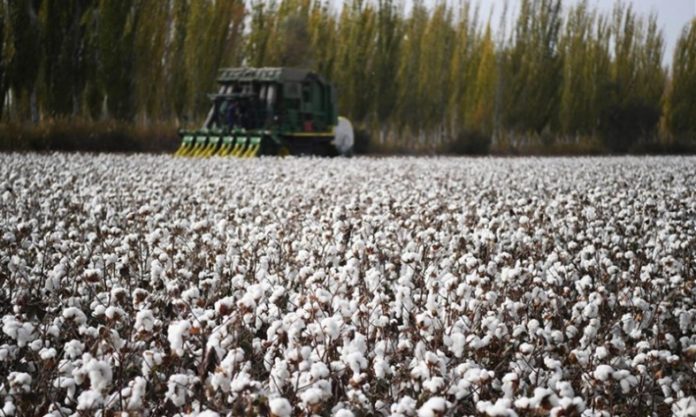By Amin Kef Sesay
One of the established United States Companies, Tesla Inc., formerly known as Tesla Motors, an American manufacturer of electric automobiles, solar panels, and batteries for cars and home power storage, was founded in 2003 by American entrepreneurs Martin Eberhard and Marc Tarpenning and was named after Serbian American inventor Nikola Tesla, recently opened a new branch in Xinjiang and that has made some people in the U.S. mad.
It could be recalled that not long ago the United States Government passed a resolution to ban any dealing related to Xinjiang, in order to put pressure on China on the grounds that there is “genocide” and forced labour in Xinjiang.
However, China has strongly and vehemently denied the US allegation of “genocide” and forced labour in Xinjiang maintaining that it is sheer lie and rumor.
Just few days ago the US President, Joe Biden, signed the so-called Uyghur Forced Labor Prevention Act into law. The legislation aims at banning all Xinjiang products from being exported to the US unless companies can provide “clear and convincing evidence” that their supply chains are free of the involvement of forced labor.
Looked at from another perspective, the US exercises presumption of guilt toward all Xinjiang products, while forcing self-incrimination onto companies. But as far as the Chinese are concerned, the US is turning a blind eye to the basic principle of modern rule of law – presumption of innocence underscoring how in order to suppress and contain China, the US would do anything.
The Chinese are of the strong belief that the so-called forced labor and genocide in Xinjiang are utter lies made up by politicians, media and think tank scholars in the US and the West.
They claimed that today, the mechanization rate of Xinjiang’s cotton sector is approaching 90 percent and asked the question of how is “forced labor” possible?
The Chinese further argue that in the past 40 years, the Uygur population has doubled and therefore asked how that can be called “genocide?”
From what was understood, last year, China’s State Council Information Office issued a white paper on employment and labor rights in Xinjiang, giving full details of the proactive employment and decent labor of Xinjiang’s ethnic minorities.
Nonetheless, the Chinese are claiming that the happy and peaceful life the Chinese people enjoy is an eyesore to Washington politicians.
They argued that Xinjiang’s peace and tranquility have not come easily. According to them, in the past more than 20 years, the three evil forces in Xinjiang had been prevalent, with terrorist and violent incidents occurring from time to time. Hundreds of innocent people, including Uygurs, were killed. Xinjiang people were faced with serious life and property threats. To ensure the basic human rights of all ethnicities in Xinjiang, the Chinese Government undertook series of measures to fight terrorism and extremism and effectively contained the momentum of terrorism in Xinjiang.
As a result, there have not been any terror incidents in Xinjiang for the past five years. Tourism and food in Xinjiang have become trendy on social media. But at this juncture, the Chinese believe, the US and Western anti-China forces try to tear open the wounds of Xinjiang and add insult to injury; they are boycotting Xinjiang products using the excuse of “human rights” in a bid to deprive the Xinjiang people of the right to make a living and develop.
It was firmly stated that the Chinese people are fully aware of the US’ intentions. The Chinese are asking: Does the US truly care about human rights in other countries or even its own?
According to the Chinese, in the past five years, more than 100,000 people have been trafficked to the US and become forced laborers annually. They furthered that the inhuman crimes the US committed against American Indian aboriginals in history are de facto genocide, that the US launched wars in multiple countries such as Iraq, Syria, Libya and Afghanistan in the name of the war on terror and human rights, leading to the deaths of millions of innocent people.
As a spokesperson of China’s Foreign Ministry pointed out, the labels of “forced labor” and “genocide” should be reserved for the US itself.
The intention of US politicians is clear. On the one hand, industries such as cotton and solar panels in Xinjiang play a significant role in the global supply chain. They are strong competitors to those in the US and Washington wants to get rid of them.
On the other hand, the US becomes more and more dependent on exploiting ideological tools to create a false sense of crisis to play “values diplomacy” and rope in its allies. Washington does not tout about “America First” anymore, but don’t the others see through it? Over the years, Washington did not even hesitate a bit when it took advantage of its allies.
As a Chinese saying goes, one should return what he receives. The Foreign Affairs Committee of the National People’s Congress said on Friday that China will take firm and strong countermeasures if the US insists on acting arbitrarily. The US’ malicious intention of depriving the Chinese people’s right to seek better lives and obstructing the historic process of the great rejuvenation of the Chinese nation is clear to the Chinese people. History has repeatedly proved that external pressure can only make the Chinese people more united, Chinese society more coherent, and the Chinese economy more resilient.




